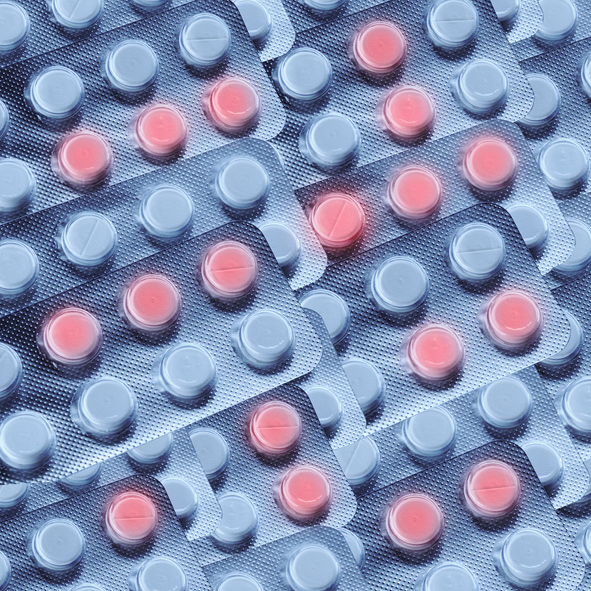How the Pill Can Increase Stroke Risk
Millions of women taking the combined contraceptive pill are at an increased risk of suffering a sudden, unexplained stroke, worrying research suggests.

The pill is not just for young women for contraception, but used by many throughout Menopause in order to help with conditions such as heavy bleeding.
In the new study, presented at the European Stroke Organisation conference in Helsinki, Finland, researchers examined data from 268 women aged 18-49 who had suffered a cryptogenic ischemic stroke.
Dr Mine Sezgin, an expert in neurology from Istanbul University and lead researcher of the new study, said the findings had implications for contraceptive use among women with health conditions that increased their risk of a stroke.
Researchers, who analysed data from over 500 women, found those who used a combined oral contraceptive the Pill were three times more likely to suffer a stroke than those who didn’t.
This was despite researchers finding no significant link between The Pill and known risk stroke factors such as high blood pressure, migraines and obesity, suggesting it was the drug itself that was somehow responsible.
Our findings confirm earlier evidence linking oral contraceptives to stroke risk and should prompt more careful evaluation of stroke risk and are now advising healthcare professionals to exercise caution when prescribing the combined contraceptive pill to women with an increased risk of stroke.
Cautions with Pill use
It is also commonly prescribed for heavy or painful periods, premenstrual syndrome, endometriosis and acne.
However, The Pill has also been associated with a number of concerning health complications including blood clots, heart attacks and cancer.
Common side effects include breakthrough bleeding, headaches, nausea and sore breasts.
According to the NHS, taking The Pill can increase a woman’s chances of developing breast or cervical cancer, but this increased risk disappears 10 years after a woman stops taking it.
An alternative view of the Pill and hormone disruption
Lara Briden is a naturopathic Doctor and author of ‘The Period Repair Manual’ and on the subject of the Pill her views are definitely worth reading so I have shared them below.
‘There have now been several generations of women on the contraceptive Pill and there is still confusion about what it contains and what it can help with so here’s what she has to say about it.
The Pill was an important step in our struggle to legalize contraception. I celebrate that, of course. What I don’t celebrate is its widespread prescription as ‘hormone balance’ for virtually any hormonal symptom that might arise in women and teenage girls.
Hormonal birth control is not effective for hormone balance
To prescribe birth control for ‘hormone balance’ is simply nonsensical. The Pill does not balance hormones. It switches them off.
The Pill switches off hormones because it switches off ovulation, and ovulation is rather important.
Ovulation is not just for making babies. It’s the also the only way to make oestrogen and progesterone, our wonderful hormones for mood, libido, and metabolism.
Pill steroids are not real hormones
The Pill switches off estradiol and progesterone, and replaces them with the pseudo-hormone drugs ethinylestradiol, levonorgestrel, and drospirenone. They’re only vaguely like hormones. They do not have the same molecular structure as human hormones, and they do not have the same benefits.
What are the differences?
– Progesterone promotes hair growth. In contrast, its drug-equivalent, levonorgestrel, causes hair loss.
– Progesterone is beneficial for cardiovascular health, but drospirenone is decidedly bad for cardiovascular health, and increases the risk for fatal blood clots by 700 percent.
– Progesterone improves brain health and cognition, while drospirenone causes depression.
– Estradiol improves insulin sensitivity, but ethinylestradiol and levonorgestrel cause insulin resistance. The Pill’s insulin problem makes it a particularly inappropriate treatment for PCOS and acne —two conditions caused by insulin resistance.
As a doctor, what concerns me most about hormonal birth control is not the rare event of a fatal blood clot, but rather the common side effects of hair loss, depression, and loss of libido.
I witness women endure these side effects, but rarely connect them with birth control. Instead, they blame themselves and their own personal inadequacy.’
Helpful information
If you are concerned about stroke risk and the Pill and are using it for contraception discuss with your doctor about changing to a non hormonal copper coil, not the standard IUD’s which also contain hormones.
Lara Briden has written an excellent book on this: Period Repair Manual: Natural Treatment for Better Hormones and Better Periods. Or see her post on How to Come Off Hormonal Birth Control at www.laurabriden.com.
If you have the Pill to help with heavy bleeding or other symptoms then consider whether progesterone could help you instead.
This article can help with that.


















